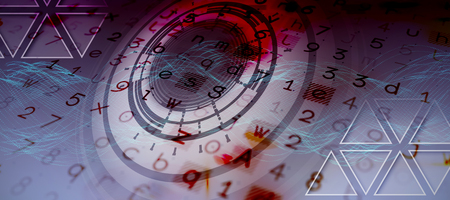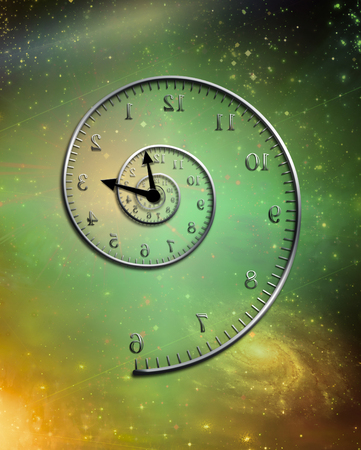Understanding the Concept of Birth Time in Indian Astrology
In Indian astrology, or Jyotish Shastra, the concept of birth time—known as Janma Samay in Hindi and many other Indian languages—holds a central place. Birth time refers to the exact moment when a person takes their first breath upon entering this world. This precise timing is not just a technical detail; it is deeply rooted in Indian cultural beliefs and traditions. Across India, families make it a point to record the Janma Samay with utmost care, often consulting elders or even medical staff at the time of childbirth to note down the hour, minute, and sometimes even seconds of birth.
The significance of Janma Samay is woven into everyday life and rituals. In many Indian households, it is customary to consult an astrologer shortly after a child is born. The astrologer uses the exact birth time along with the date and place of birth to prepare the Janam Kundali or horoscope chart. This chart forms the foundation for predicting important aspects of one’s life such as health, education, marriage, career, and spiritual inclinations. The belief that each individual’s destiny is uniquely tied to the celestial positions at their specific birth time is widespread throughout India, transcending regional and linguistic boundaries.
Traditionally, festivals like Namkaran (naming ceremony) and even significant decisions such as marriage proposals are influenced by astrological interpretations derived from Janma Samay. It is common practice in both urban and rural areas to keep a written record of children’s birth details for future reference. For many families, this information becomes a cherished document passed down through generations, reflecting not only faith in astrology but also respect for cultural heritage.
2. Why Accurate Birth Time Matters: The Science behind the Chart
In Indian astrology, also known as Jyotish Shastra, the accuracy of birth time is of utmost importance. Even a difference of just a few minutes can completely change your astrological chart. This is because the ascendant, or Lagna, changes roughly every two hours, and sometimes even faster in certain cases. The Lagna sets the foundation for your entire horoscope, influencing your physical appearance, personality traits, and life path. If the birth time is even slightly incorrect, the planetary positions in the twelve houses and their aspects can shift, leading to a different interpretation altogether.
How Small Differences Impact the Chart
The table below illustrates how a minor variation in birth time can alter key elements in your horoscope:
| Birth Time Difference | Possible Change in Chart | Astrological Significance |
|---|---|---|
| 1-2 Minutes | Lagna Degree Changes | Shifts strength and effects of houses and planets |
| 4-5 Minutes | Lagna Sign Can Change | Completely alters personality and life direction |
| 10-20 Minutes | Planetary House Positions Shift | Dasha (planetary periods) and predictions become inaccurate |
| 30+ Minutes | Divisional Charts (Vargas) Change | Marriage, career, children predictions may be affected |
The Role of Divisional Charts (Vargas)
Indian astrology goes beyond the basic horoscope by analyzing divisional charts like Navamsa (D9), Dasamsa (D10), and others. These charts provide deeper insights into specific areas such as marriage, career, and spiritual progress. Since these charts are highly sensitive to birth time, even a five-minute error can lead to entirely different Vargas, resulting in misguided interpretations and remedies.
Cultural Relevance in India
In Indian families, accurate birth time is traditionally recorded during childbirth ceremonies like Namkaran or Jatakarma. Elders understand its importance for future astrological consultations regarding education, marriage alliances (Kundali matching), health issues, and auspicious timings (Muhurta). Thus, ensuring the correct birth time not only respects cultural practices but also provides reliable guidance throughout one’s life journey.

3. Common Challenges in Recording Precise Birth Time in India
In the context of Indian astrology, the accuracy of birth time is crucial for creating a reliable horoscope. However, recording an exact birth time is often challenging in India due to several real-world factors. One of the most common issues is the reliance on memory. In many Indian households, especially in rural areas or during home births, family members may not have immediate access to accurate clocks or watches. As a result, they tend to estimate the birth time based on major daily events, such as sunrise, meal times, or even the position of the sun. This can lead to discrepancies of several minutes or even hours.
Another challenge arises from approximate recordings by families. Sometimes, birth details are registered much later after the actual event, and parents or relatives might recall the time vaguely or round it off for convenience. For example, its quite common to see birth times recorded as exactly 6:00 AM or 12:00 PM in official documents, which rarely reflects the true moment of birth. This practice is influenced by both cultural habits and administrative procedures.
Under-resourced hospitals and maternity clinics present further obstacles. In government hospitals or smaller private clinics, staff may be overwhelmed with multiple deliveries and lack proper documentation systems. Accurate recording of each child’s birth time may not be prioritized amidst their workload. Sometimes, nurses or doctors note down times retrospectively at the end of their shift or simply provide an approximate figure for paperwork purposes. For instance, a nurse might record several babies as born at “9:30 AM” if they all arrived around that period but could not document the precise minute for each.
These real-life scenarios illustrate why many Indians grow up with uncertain or approximate birth times, which can significantly affect astrological predictions and remedies. Understanding these challenges helps explain why astrologers often ask clients whether their recorded birth time is precise or just an estimate and may suggest rectification methods if needed.
4. Rectification Techniques: Indian Astrologer’s Approach
In the Indian astrological tradition, birth time rectification holds a significant place, especially when there is doubt about the exact moment of birth. Many families in India may not have recorded the precise time due to various reasons, making rectification a crucial step before proceeding with Kundli (birth chart) analysis. Let us explore some of the most trusted and popular methods used by Indian astrologers for this purpose.
Life Event Matching (Jeevana Ghatna Anukoolan)
This method involves comparing major life events—such as marriage, education milestones, career changes, or childbirth—with planetary periods (Dasha) and transits. The astrologer adjusts the birth time so that key events align with significant yogas and Dasha periods in the native’s horoscope. This approach is widely accepted among traditional Jyotish practitioners.
| Life Event | Astrological Indicator |
|---|---|
| Marriage | 7th House Activation, Venus/Mars Dasha |
| First Job | 10th House & Saturn/Jupiter Dasha |
| Childbirth | 5th House & Jupiter Dasha |
Prashna (Horary Astrology)
Prashna Shastra is a unique branch of Indian astrology where the astrologer casts a chart for the moment a question about birth time is asked. This ‘question chart’ provides clues about discrepancies in the recorded birth time and helps refine it with remarkable accuracy. Prashna is especially useful when no written record exists and family members have only vague memories.
Palmistry Cross-Referencing (Hasta Rekha Vigyan)
Some seasoned astrologers use palmistry to cross-check birth details. Features like the length and clarity of life line, fate line, and sun line can indicate major life events and their timing. By correlating these palm lines with planetary Dashas and past events, astrologers can further fine-tune the native’s birth time. This holistic approach combines two ancient Vedic sciences for improved accuracy.
Popular Terms in Birth Time Rectification
| Sanskrit Term | Description |
|---|---|
| Kundli Sudharana | Birth Chart Correction/Rectification |
| Dasha Sandhi | Junction of Major Planetary Periods |
| Nadi Astrology | Palm Leaf Readings Used for Confirmation |
Conclusion on Rectification Methods
The accuracy of birth time is foundational to all predictive work in Indian astrology. Through methods like life event matching, Prashna, and palmistry cross-referencing, Indian astrologers ensure that Kundli readings are both personalised and precise, reflecting the rich diversity and depth of India’s astrological heritage.
5. Role of Accurate Birth Time in Important Life Predictions
In Indian astrology, the significance of an exact birth time goes beyond mere curiosity—it plays a crucial role in shaping accurate predictions about key life events. Let us explore some scenarios deeply familiar to Indian families, where even a few minutes’ difference can change the course of astrological interpretations and remedies.
Marriage Prospects and Matching Kundalis
Marriage is considered one of the most important milestones in Indian society. The process of matching horoscopes (Kundali Milan) is integral to ensure compatibility between prospective brides and grooms. An accurate birth time determines the precise placement of planets and Lagna (Ascendant), which directly impacts the calculation of Gunas (points) and Doshas like Mangal Dosha. If the birth time is off by even a small margin, it may result in incorrect dosha detection—leading to either unnecessary worries or overlooked issues that could affect marital harmony.
Career Predictions and Growth Opportunities
The timing of birth also affects predictions related to career choices and professional growth. For example, the Dasha-Bhukti system—unique to Vedic astrology—relies on the Moon’s position at birth. A slight deviation in recording the birth time can shift the sequence and duration of planetary periods, impacting forecasts about promotions, foreign opportunities, or business ventures. Many Indians consult astrologers for advice before making major career moves; thus, an accurate chart provides practical guidance tailored to ones true destiny.
Remedies for Doshas: Importance of Correct Timing
Doshas like Mangal Dosha, Shani Dosha, or Kaal Sarp Dosha are widely discussed concerns in Indian households. These planetary afflictions can influence marriage prospects, health, and family life. Astrologers recommend specific remedies—such as pujas, mantras, or gemstones—based on the strength and position of afflicted planets at the exact moment of birth. An error in birth time might lead to ineffective remedies or unnecessary rituals, causing emotional and financial stress for families.
In essence, whether it is finding a suitable match for marriage, planning a career path, or performing dosha remedies, accurate birth time forms the backbone of reliable astrological guidance in India. This cultural reliance underscores why families take great care to record the exact moment of a child’s arrival into the world.
6. Advice for Indians: Ensuring and Verifying Birth Time
In India, the accuracy of birth time is deeply valued for astrology and rituals. However, in both urban hospitals and rural settings, mistakes or approximations can happen. Here are practical tips to help Indian families and individuals preserve and verify birth times:
Preserving Birth Time in Urban India
1. Request Official Records: Ask hospital staff for the exact time of birth, which is usually documented on the birth certificate. Ensure you receive a copy of this certificate soon after delivery.
2. Digital Documentation: Store the birth time digitally—take a photo of the certificate or save the details in your mobile or cloud storage so it remains safe from loss or damage.
3. Family Group Sharing: Share the recorded birth time with close family members through WhatsApp or family email groups, ensuring multiple people have access to this important information.
Preserving Birth Time in Rural India
1. Community Witnesses: If formal records are not available, note down the names of those present at the time of birth (such as elders, midwives, or neighbours), as their recollections can serve as reference.
2. Local Event Association: Link the time of birth to local events like sunrise, meals, prayers, or village announcements (“the baby was born just after the morning aarti” or “before school bell rang”). This provides a frame of reference if exact time is unclear.
3. Written Documentation: Write down the date and estimated time soon after birth in a family diary or notebook and keep it in a safe place.
General Tips for All Indians
1. Verification with Relatives: During family gatherings, discuss and cross-check memories about birth timings with elders who were present.
2. Consult Astrologers Early: When planning to create a horoscope (Kundli), consult an experienced astrologer early on. They may help in rectifying minor uncertainties using “birth time rectification” methods based on major life events.
3. Avoid Guesswork: Refrain from guessing or rounding off the time (like saying “around 12 noon”). Even small variations can alter astrological predictions.
4. Keep Records Updated: If you move cities or states, update your records and keep photocopies accessible at all times.
Cultural Importance of Accurate Birth Time
The tradition of recording Janam Samay (birth time) is part of Indian heritage and is integral to rituals like Naamkaran (naming ceremony), Upanayan (thread ceremony), and marriage matching (Kundli Milan). Maintaining accuracy honours these traditions and ensures astrological guidance remains relevant throughout life.
A Simple Habit for Future Generations
Cultivating the habit of careful record-keeping will benefit not only you but also future generations, making sure that vital moments are preserved for all family members’ astrological needs.
By following these practical steps, Indian families—whether in bustling cities or remote villages—can ensure their loved ones’ birth times are accurate and accessible when needed for astrology, tradition, and beyond.

